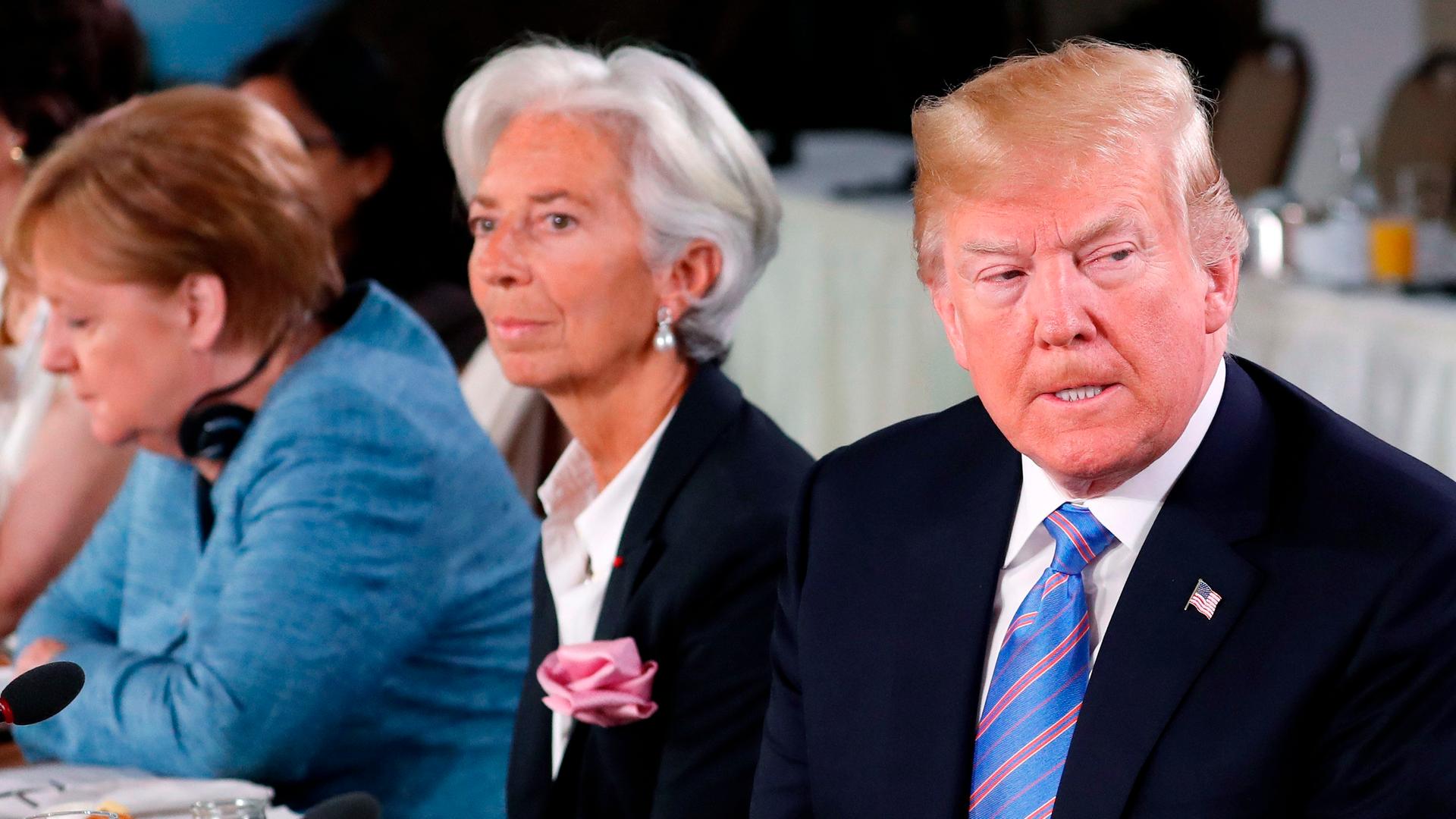Trump to leave G7 early, missing environmental talks
US President Donald Trump, Managing Director of the International Monetary Fund Christine Lagarde and Germany Chancellor Angela Merkel attend a G7 and Gender Equality Advisory Council meeting as part of a G7 summit in the Charlevoix city of La Malbaie, Québec Canada, June 9, 2018.
US President Donald Trump planned to leave the summit of the Group of Seven wealthy nations on Saturday before it discussed climate change and the health of oceans, underlining fractures in the G7 exacerbated by US trade tariffs.
The six-plus-one tone of the gathering in Québec means the leaders from Canada, Britain, the United States, France, Germany Italy and Japan are unlikely to issue a joint statement, too sharply divided on trade or the environment to reach consensus.
Still, a French official said on Friday the United States and European Union will establish a dialogue on trade within the next two weeks, signaling a modest step forward for the bitterly divided allies of the G7.
The two-day summit in Canada has been marred by fears of a trade war and tit-for-tat exchanges of hostile tweets, with US trading partners furious over Trump’s decision to impose tariffs on steel and aluminum imports from Canada, the European Union and Mexico as part of his “America first” agenda. Some countries have retaliated with their own levies on US imports.
While Trump set a combative tone before even arriving at the summit with a series of tweets about unfair trade deals, he appeared affable and joking at multiple brief photo opportunities and praised French President Emmanuel Macron for helping to work out trade issues.
“Something’s going to happen. I think it will be very positive,” Trump said on Friday, without giving details.
The leaders worked late into the night on Friday at the luxurious and tightly secured riverside hotel where the summit is being held, with the White House tweeting a photo showing the leaders huddled around a coffee table at 11:20 p.m. Eastern time, looking at what appeared to be a draft document marked up with a highlighter. German Chancellor Angela Merkel sat between Macron and Trump on a sofa, while Canadian Prime Minister Justin Trudeau sat to the left of the US president.
Trump plans to leave the summit midmorning on Saturday, four hours earlier than originally planned, to fly to Singapore to meet with North Korean leader Kim Jong-un.
That means he will miss a working session among the leaders on climate change and clean energy, as well as talks among the G7 and poorer countries focused on the health of oceans.
The early exit also means he will be gone before allies begin closing news conferences likely to be laden with criticism of the US stance on trade and Trump’s abrupt suggestion on Friday that Russia be readmitted to the elite grouping.
Russia was suspended from the group in 2014 because of its annexation of Crimea from Ukraine. Merkel said EU countries at the summit agreed that the conditions to readmit Russia had not been met and even Moscow seemed to reject the suggestion.
Trump’s presidency has been clouded by a federal investigation into alleged Russian meddling in the 2016 presidential election and possible collusion by his campaign. Both Moscow and Trump have denied the allegations.
(Additional reporting by Jean-Baptiste Vey, David Ljunggren, Giselda Vagnoni, Jan Strupczewski and William James; Writing by Andrea Hopkins; Editing by Stephen Powell)
